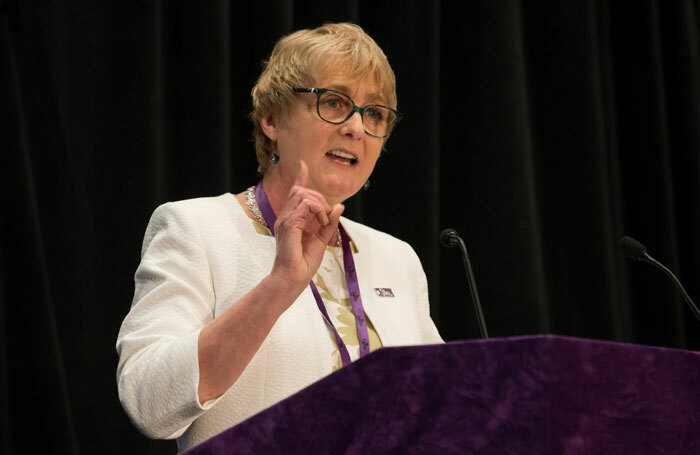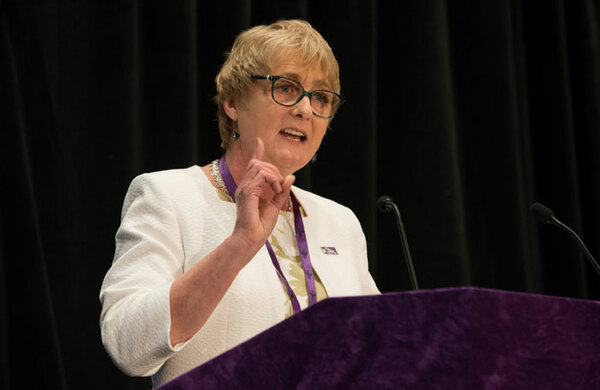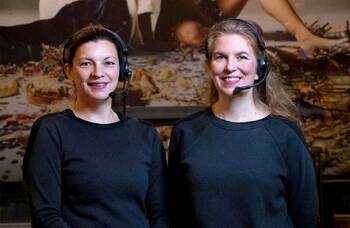In defence of Arts Council's diversity data (your views, June 15)
In response to Equity’s recent remarks about Arts Council England’s diversity data on theatre staff (‘Equity savages Arts Council’s diversity efforts’, News, May 25), I would like to make the following points:
We have a good deal of data on employment in the arts. It is not exhaustive, but this is hardly surprising given the range of employment the arts and cultural sector covers. It does, however, give us the percentage of women, black and minority ethnic and disabled staff in the national portfolio organisation workforce. We can then break this down into permanent, contractual, voluntary and boards, into managers, artistic and specialist roles and by art form. We publish this data on our website at bit.ly/ace-report and refresh it every year.
When we examine the data for theatre, it paints a largely encouraging picture about diversity; in 2015/16, 17% of the overall NPO theatre workforce is BAME (rising to 23% in artistic roles) and women are strongly represented at all levels, especially in management roles (61%). This is encouraging, but more needs to be done, especially for those wanting to work in the industry who are deaf or disabled and who represent only 5% of NPO workforce.
It is the responsibility of all of us working in the industry – funders, unions, membership organisations and arts organisations – not only to be rigorous and accurate in our monitoring and collection of data, but to ensure those working in the cultural sector are representative of the communities they inhabit. We are now in conversation with UK Theatre about how new research could help build our understanding of diversity in the wider theatre workforce.
Neil Darlison
Director of theatre, Arts Council England
Student from Guildhall
We were pleased at coverage of our Stage Management Awards (‘NTW and The Miser pick up stage management gongs’, News, June 8).
Every day, exceptional stage managers do outstanding work across the country. This is the SMA’s inspiration for running these awards.
This year, our awards attracted more than 100 nominations from all sections of the theatre community, reporting outstanding and sometimes astonishing stage management work in theatres and events across the UK.
However, may we please correct one item in your article: Megan Smith, highly commended in the student achievement award, is graduating from Guildhall School of Music and Drama, not from Guildford School of Acting.
Andy Rowley
Executive director, Stage Management Association, London, SE1
Do you recall any Polari?
When I started working in the theatre in the mid-1980s, it was still common, backstage, to hear Polari spoken – with a good smattering of theatrical slang and circus talk thrown in. I’ve been witness to the decline of this rich and fascinating lexicon, through rejection to purely ironic use to being almost forgotten.
I’m creating a series of pieces inspired by the Polari dialect and would like to appeal for performers and theatre workers to contribute words or phrases as they remember them, or that may still be in use. This vibrant part of theatre life deserves a lasting testament and I look forward to hearing any expressions The Stage readers have to share.
Sam Moreno
samm@norwichplayhouse.co.uk
I ran Mountview two-year course
Your feature on two-year courses (‘Two-year courses: the future for drama training?’) stated that “none of the mainstream drama schools have offered a two-year degree course”. It was made clear that some drama schools, such as LAMDA, run a two-year foundation degree that requires a further year to reach honours level.
I should like to point out that when I held the position of head of technical theatre at Mountview Academy of Theatre Arts, I both created and ran a very successful two-year honours degree in technical theatre, which was validated by Middlesex University. The students received the same number of teaching weeks as they would have done on a three-year degree but had shorter holidays.
Francesca Greatorex
Production stage manager
Quote of the week

“We can’t patronise audiences any longer by not allowing them to see stories about the real world. If every story that you see is about a white man, and you don’t identify with that white man, you’re forever questioning what your story is and that’s not really fair. We need to engage audiences and to change the culture of theatregoing in this country, because it’s dire.”
Director Roy Alexander Weise (Exeunt)
“I committed myself to playwrights, because only the writer could communicate ideas with power and depth in the theatre. I committed myself to stories, because telling stories is the great equaliser, the way that all audiences are allowed a way into the work, regardless of age, education or privilege.”
Oskar Eustis, artistic director of the Public Theater, New York (New York Times)
“Actors are 50% ego, 50% insecure. I love the excitement of being able to perform and funnel that precociousness into a more positive form of: ‘Look at me, look at me!’ ”
Actor Uzo Aduba (Guardian)
“David Lan’s influence extends way beyond the work onstage at the Young Vic. He has pushed a generation of British theatremakers in new directions. The Young Vic blossomed into one of the most daring and caring theatres in the UK, if not the world, under his leadership. Sad to see him go.”
Theatre critic Matt Trueman, on David Lan stepping down as artistic director of London’s Young Vic (Twitter)
“Many thanks to @mrjamesgraham for that crash course in the nitty-gritty on hung parliaments in This House … ;-).”
Theatre critic Sarah Hemming on the general election result (Twitter)
“Because the government isn’t supporting the arts, we spend more on bombs every year than we do on arts. Even if you are a pacifist, 500 quid of your money every year per capita goes to arms. It’s controversial to say, but sometimes communication can diffuse a potential bomb too. Sometimes listening empathetically or going to a youth theatre and meeting people who are of another ethnicity or religion can diffuse anger or ignorance.”
Actor Paterson Joseph, speaking at the opening of LAMDA’s new building
“I have to be strong and refuse to take jobs unless I get the same as the man with the same experience. Though when I do, they say, ‘We’re not going to go above X.’ So am I willing to throw the job away?”
Actor Ruth Wilson (Evening Standard)
What you said on Facebook
About the news that Sheridan Smith pulled out of Funny Girl performances owing to illness…
Poor Sheridan. We all get sick, could happen to any of us. I’m sure she just wants to be well and back on stage again. And this is exactly why there are understudies in roles. Get better soon, Sheridan.
Caroline Davis
Oh no, not again. Poor girl seems to be dogged by bad luck. I hope she recovers quickly. Natasha J Barnes is brilliant, though. Audiences won’t lose out.
Sara Neill
About our article looking at what a minority Conservative government means for the arts…
The DUP will see the arts as a hotbed of sodomy and degeneracy and the Tories are hellbent on cutting anything that can be cut. Look forward to a very hostile atmosphere for as long as this Frankenstein’s monster of a “government” survives.
Ged Quayle
I think it could be a very easy target if they look to make further cuts. I can’t see many (if any) Tories rebelling against cuts to the arts and the DUP certainly wouldn’t hold back.
Matthew Jackson
More about this organisation
Most Read
Across The Stage this weekYour subscription helps ensure our journalism can continue
Invest in The Stage today with a subscription starting at just £7.99










